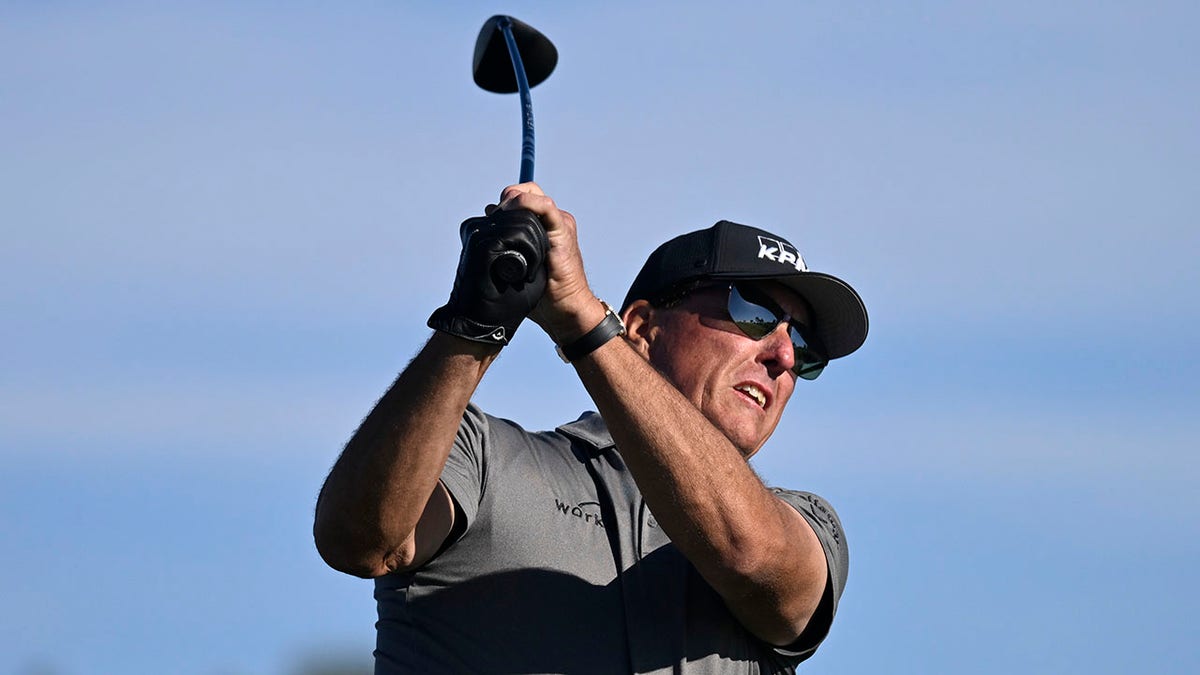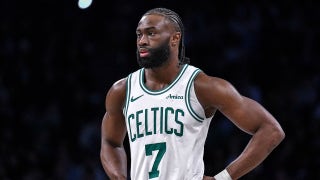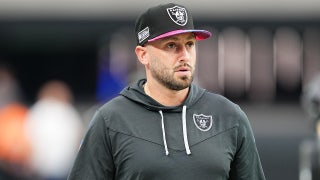Fox News Flash top headlines for February 8
Fox News Flash top headlines are here. Check out what's clicking on Foxnews.com.
Phil Mickelson decided to chastise the PGA Tour for not paying him what he deserves by accusing the league that made him rich and famous of "obnoxious greed."
There's a better way to go about it. For a six-time major champion who for 30 years has amazed his audience with a golf club, his biggest bravado now involves a pen.
CLICK HERE FOR MORE SPORTS COVERAGE ON FOXNEWS.COM
Just be the first player to enlist.
The Saudi-backed "Super Golf League" remains more rumor than reality. Greg Norman is in charge, and while his C-suite is filling up, he still hasn't announced a roster of players to take part in what the Shark has referred to only as "additive new opportunities."
But is that what Mickelson really wants?
He referred to the PGA Tour's ownership of a player's media rights as "beyond obnoxious" in an interview with Golf Digest. And then he doubled down by suggesting this "obnoxious greed" is why the tour is now under threat from other tour models.
It's more about money than models, of course.
And it's safe to assume Mickelson received more in appearance money from the Public Investment Fund than he would have made from his Dean Foods stock deal if only Lefty didn't have to return the $931,000.

Phil Mickelson hits his tee shot on the fifth hole of the South Course at Torrey Pines during the first round of the Farmers Insurance Open golf tournament, Wednesday Jan. 26, 2022, in San Diego. (AP Photo/Denis Poroy)
For now, he's relishing in the perceived threat.
"The tour only understands leverage," Mickelson told Digest. "And now the players are getting some of that. So things are changing and will continue to change. I just hope the leverage doesn't go away. If it does, we'll be back to the status quo."
A number of players privately have portrayed Mickelson as a chief recruiter. The unknown is whether he wants them to join the league and disrupt the tour, or if he needs as many of them as possible to increase leverage.
Even the players who have indicated no interest in Norman or the Saudis — and it's a larger, more notable group than those who are tempted — have suggested competition is healthy and the players ultimately will benefit from it.
Haven't they already?
There is a "Player Impact Program" that was worth $40 million last year (Mickelson was quick to proclaim himself the winner of the $8 million first-place award), which increases to $50 million this year. Prize money is soaring. The FedEx Cup bonus pool is up to $75 million. And those numbers will keep rising through the end of decade.
Does that happen without the threat of a new league offering guaranteed riches?
Jay Monahan said the idea of a super league had been around a couple of years before he took over as PGA Tour commissioner at the end of 2016. The tour was in the midst of a nine-year television contract that didn't include a separate digital deal.
The tour signed a 12-year, $2 billion deal with Discovery in June 2018 to deliver golf to overseas markets. Two years later, the tour finalized a new media rights deal (network and digital separately) worth about $7 billion over nine years, which took effect this year.
"So when you look at ‘22 through ’30, you look at all the opportunities out there, we're going to do as we've done in the past, which is more than compete favorably against anything else out there," Monahan said in an interview last month.
He said he knew prize money and programs like the FedEx Cup were going to increase. To do that sooner would mean taking money from tournament purses.
As for the Player Impact Program, and the "Play 15" program that doles out $50,000 to every player who competes in the minimum 15 events to keep membership, Monahan isn't sure that would have happened without an outside challenge.
"When you're in a situation where there's heightened tension on a competitive environment ... it gives you an opportunity to maybe attack some sacred cows or some areas that people said you can never do that," he said. "That's an opportunity within the context of trying to improve."
Mickelson is misguided in his argument of owning his media rights. The tour structure is similar to other major sports leagues. Networks would have no reason to invest so heavily if they had to compete with star athletes using footage at will for commercial gain.
Lefty also hit on the idea that leverage would allow players to "get in a more equitable position" with other major sports. That's a great idea except that golf isn't like other sports. The NBA starts with training camp in October and goes for seven months without any weeks off.
Mickelson is not at the Phoenix Open this week. He was headed to Montana to ski. Setting a schedule is what golf affords, not to mention the ability to compete at a high level for 25 years — or in his case, win a major championship at age 50 — all while accruing an enormous pension.
It's a lot to digest. Mickelson conceded as much when he said he wasn't sure where it was headed because of so much that needed to be addressed. He has served on the tour's Player Advisory Council twice in his 31 years, most recently in 2001.
CLICK HERE TO GET THE FOX NEWS APP
Ultimately, though, he felt it would end on a positive note.
Most telling was when Mickelson was asked for a general comment on Golf Saudi. He applauded the group for its support of the players, for sponsorship of Ladies European Tour events and for creating leverage for the players to try to improve the PGA Tour.
If that's what this is about — leverage — then maybe Norman is the one who should be worried.









































